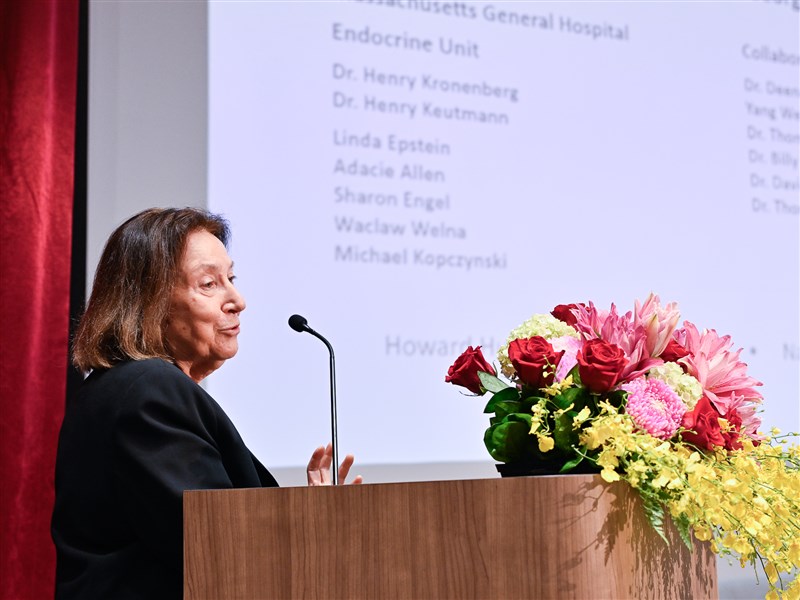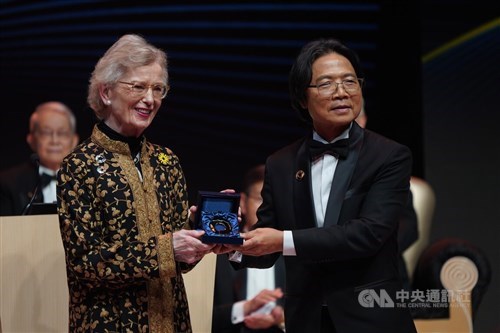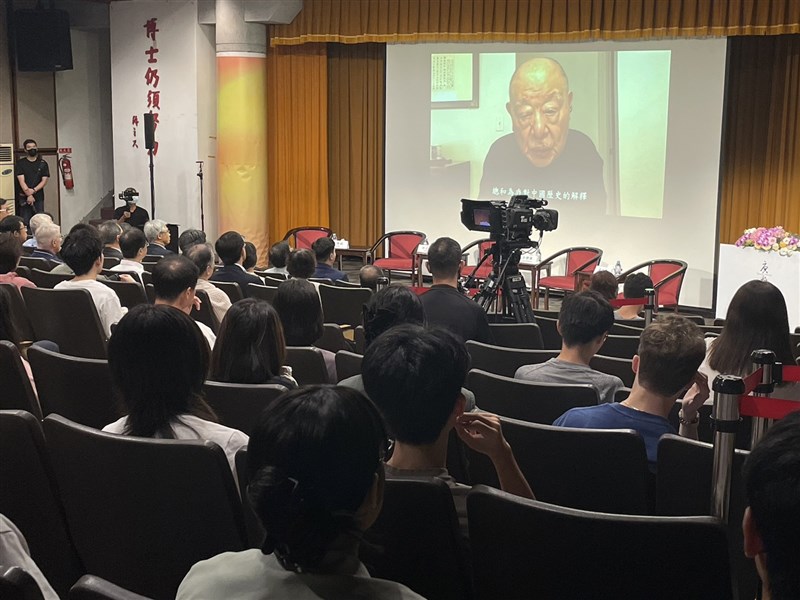TANG PRIZE / Taiwanese-American historian Hsu Cho-yun wins Tang Prize in Sinology
06/20/2024 01:35 PM
Hsu Cho-yun (許倬雲), a 94-year-old Taiwanese-American historian who specializes in ancient Chinese history, has been named the 2024 Tang Prize laureate in Sinology for his integration of social science methodologies into historical research and his devotion to comprehensive historical narratives.
(Full text of the story is now in CNA English news archive. To view the full story, you will need to be a subscribed member of the CNA archive. To subscribe, please read here.)
More in TANG PRIZE
-
![Drugs treating diabetes, obesity can do more: Tang Prize laureates]() Drugs treating diabetes, obesity can do more: Tang Prize laureatesSvetlana Mojsov and Jens Juul Holst, two of the laureates of the 2024 Tang Prize in Biopharmaceutical Science, said at a forum in Taichung on Tuesday that the GLP-1-based drugs their research spawned could go beyond managing diabetes and obesity.10/01/2024 08:52 PM
Drugs treating diabetes, obesity can do more: Tang Prize laureatesSvetlana Mojsov and Jens Juul Holst, two of the laureates of the 2024 Tang Prize in Biopharmaceutical Science, said at a forum in Taichung on Tuesday that the GLP-1-based drugs their research spawned could go beyond managing diabetes and obesity.10/01/2024 08:52 PM -
![Tang Prize winner lauds Taiwan implementation of human rights covenants]() Tang Prize winner lauds Taiwan implementation of human rights covenantsFormer Irish President Mary Robinson on Monday praised Taiwan's efforts to incorporate international covenants on human rights into its domestic law despite not being a signatory.09/30/2024 08:58 PM
Tang Prize winner lauds Taiwan implementation of human rights covenantsFormer Irish President Mary Robinson on Monday praised Taiwan's efforts to incorporate international covenants on human rights into its domestic law despite not being a signatory.09/30/2024 08:58 PM -
![Historian shares research into ancient Chinese myth at Tang Prize forum]() Historian shares research into ancient Chinese myth at Tang Prize forumRenowned Taiwanese-American historian Hsu Cho-yun (許倬雲) on Monday said his work regarding the ancient Chinese myth Da Yu (大禹) was a successful example of integrating social science methodologies into historical research that helped him win the 2024 Tang Prize in Sinology.09/30/2024 01:52 PM
Historian shares research into ancient Chinese myth at Tang Prize forumRenowned Taiwanese-American historian Hsu Cho-yun (許倬雲) on Monday said his work regarding the ancient Chinese myth Da Yu (大禹) was a successful example of integrating social science methodologies into historical research that helped him win the 2024 Tang Prize in Sinology.09/30/2024 01:52 PM
Latest
-
Society
Worker dies in Innolux workplace accident in Tainan
02/22/2026 07:16 PM -
Society
Taipei's Grand Hotel warns of possible data breach after cyberattack
02/22/2026 05:53 PM -
Business
Foxconn, HCL break ground on NT$13.1 billion chip plant in India
02/22/2026 05:40 PM -
Business
Taiwan should prepare response to possible U.S. Section 301 probe: Scholar
02/22/2026 05:36 PM -
Culture
Czech author reflects on cultural erasure under authoritarian rule
02/22/2026 04:35 PM


